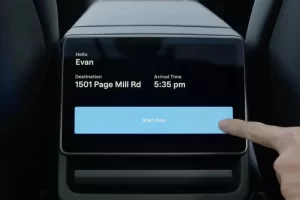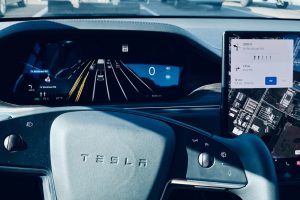Acura has announced that its upcoming electric vehicle offerings will be sold directly to consumers online instead of through the brand’s traditional dealership network.
Acura and Honda are slated first to bring a full lineup of hybrids to the car market, followed by electric vehicles in 2024, with more EVs coming after that. However, according to comments given to Engadget, the brand will be selling its upcoming EVs entirely online, circumventing its dealership system.
Acura’s new sales strategy was revealed to journalists via a meeting with Acura’s SVP of Sales, Mamadou Diallo. During the announcement, Mr. Diallo first elaborated on the hybrid strategy (mentioned above) and Acura’s goal of selling 100% electric vehicles by 2040. Therein, Mr. Diallo revealed that the first EVs coming to market would be the Acura ZDX and the Acura ZDX Type S, a performance variant of the upcoming EV SUV.
No other details were revealed about the online sales strategy, leaving many to wonder if the new sales strategy would also mean the end of price haggling, how vehicles would be delivered to customers, or if dealers would still service their vehicles if they weren’t bought through the dealership system among a slew of other questions.
Acura wasn’t immediately available for comment to Teslarati. However, the company has stated that details are still being finalized regarding the online purchasing system.
Acura was likely influenced in its decision to avoid its dealerships after seeing the chaos surrounding Lincoln and Cadillac dealers, both of which saw a massive drop in numbers as they opted out of selling EVs. Similarly, another Honda Motors venture, Sony-Honda Mobility, currently plans to avoid the Honda dealership system altogether, showing a pattern of how Honda’s current management views the dealership system.
While it seems that more and more automakers are working towards direct-to-consumer sales models, not everyone seems convinced. Ford’s CEO Jim Farley has previously outlined that he plans to maintain the massive Ford dealership system by having the facilities operate with fewer inventory vehicles and a new staffing structure. Similarly, General Motors has made no indication that it plans to abandon its dealership system that it often brags covers 90% of Americans.
As the EV market continues to become more competitive in the coming year(s), manufacturers may be forced to reconsider their relationship with dealers that many consumers prefer not to work with. And with such a strong financial incentive to ditch dealers to retain more profit, the dealership system’s future has become murky.





